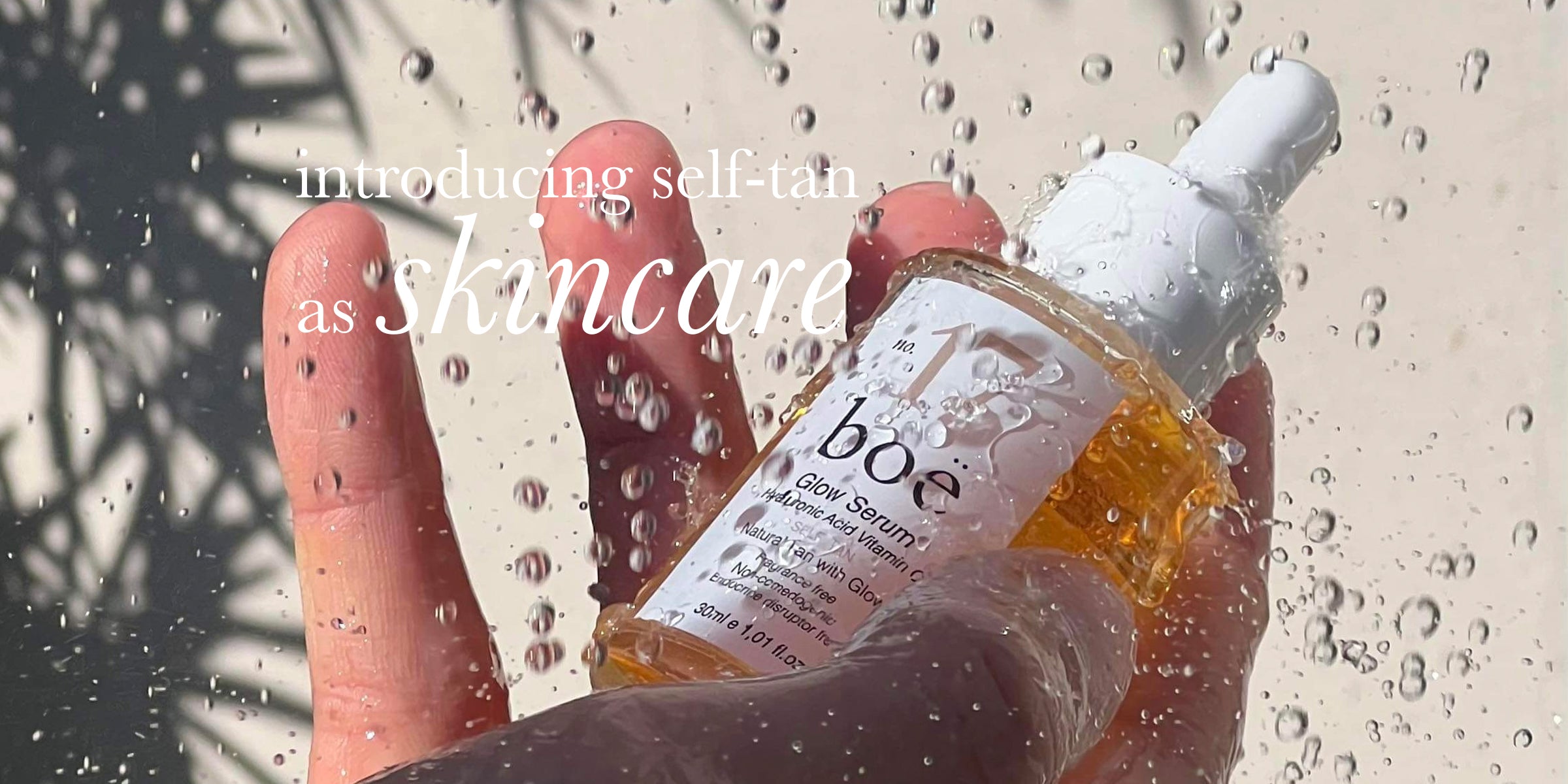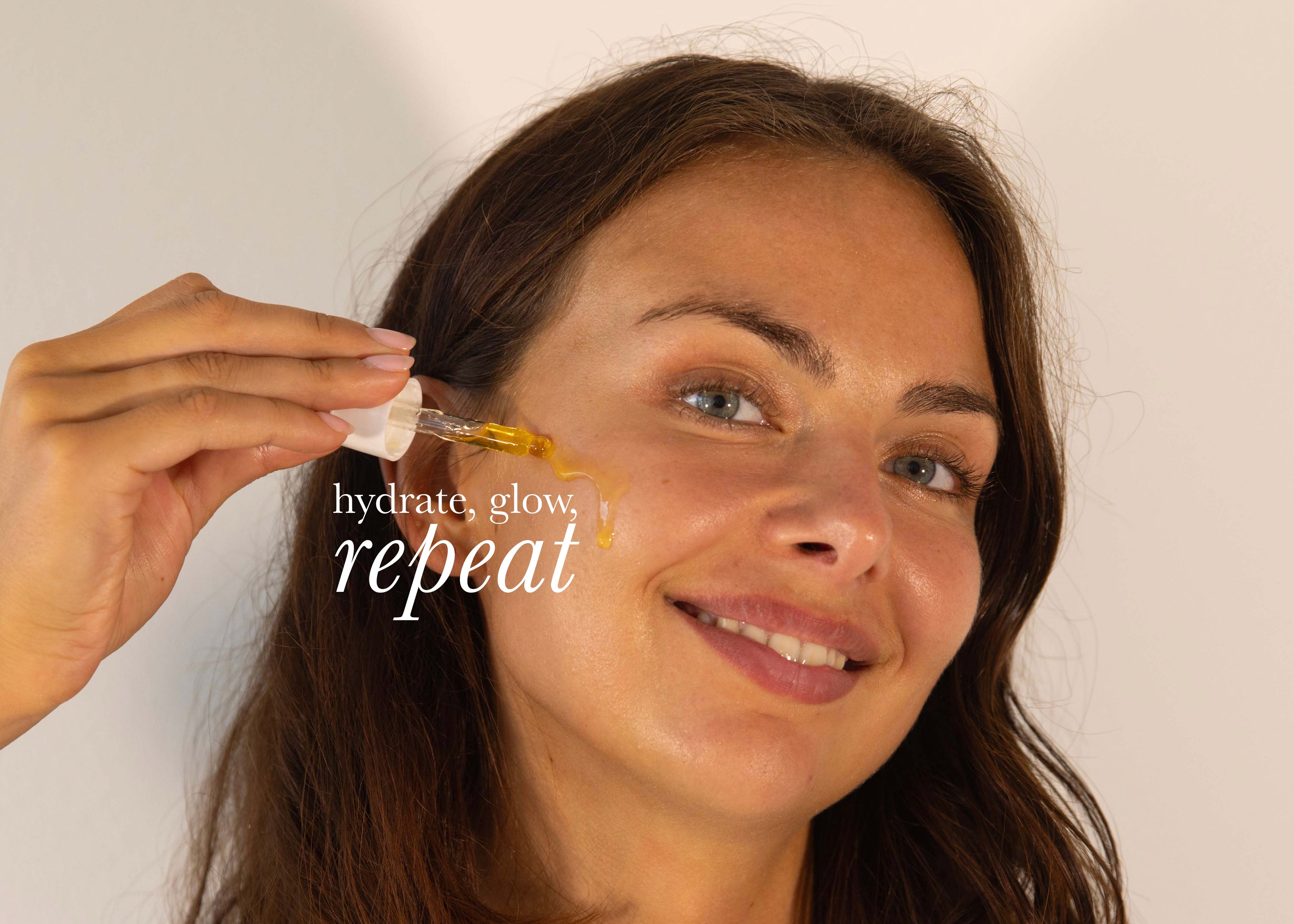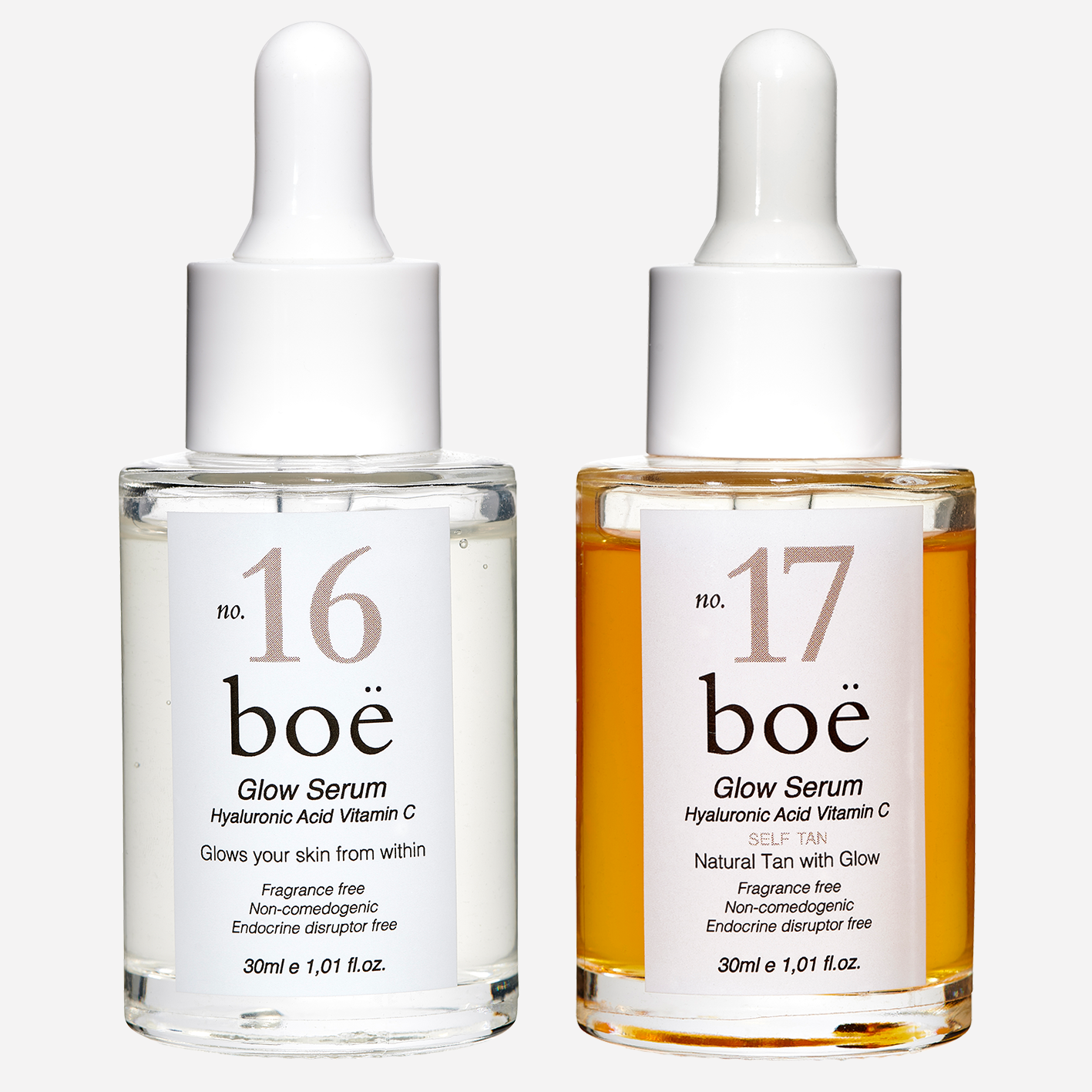
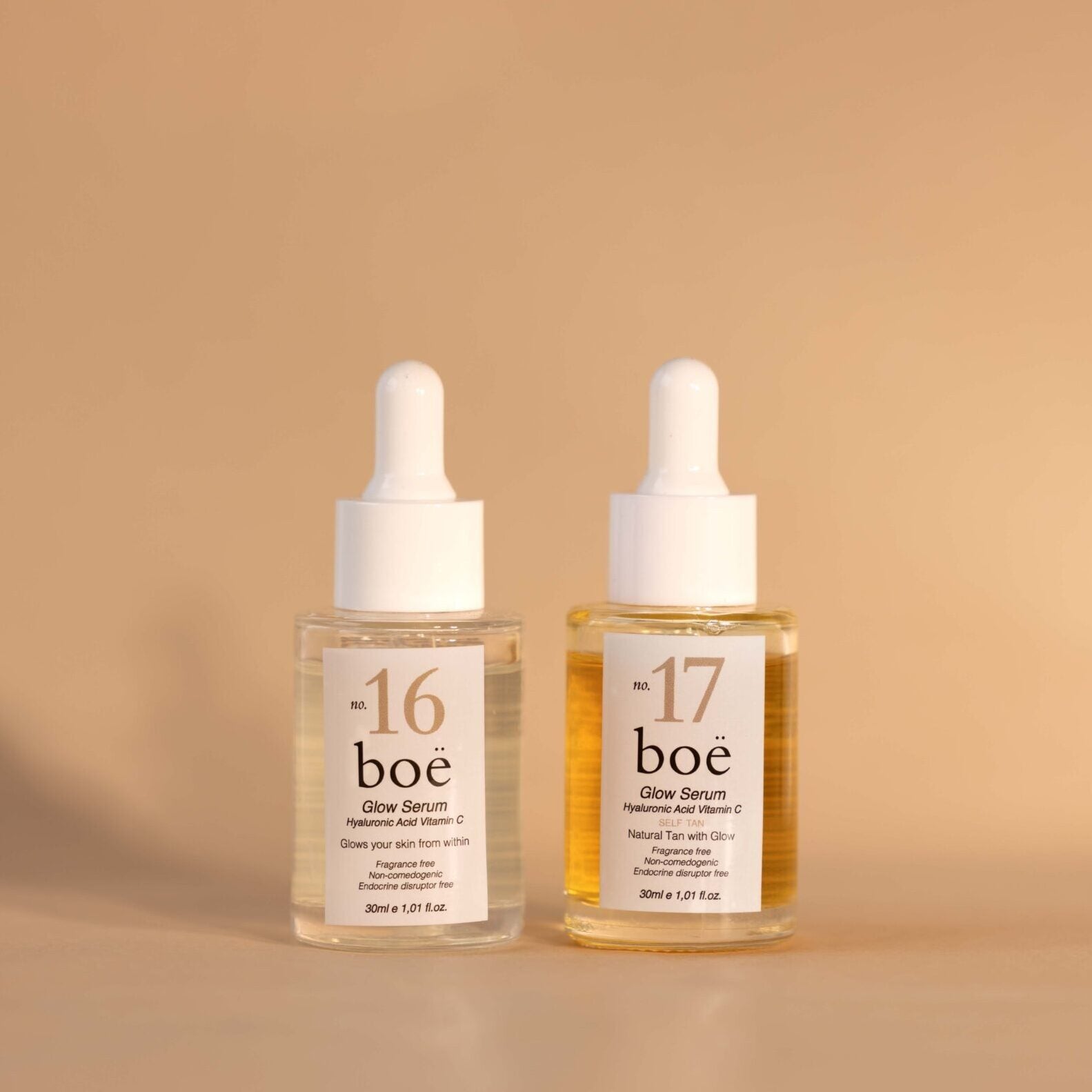
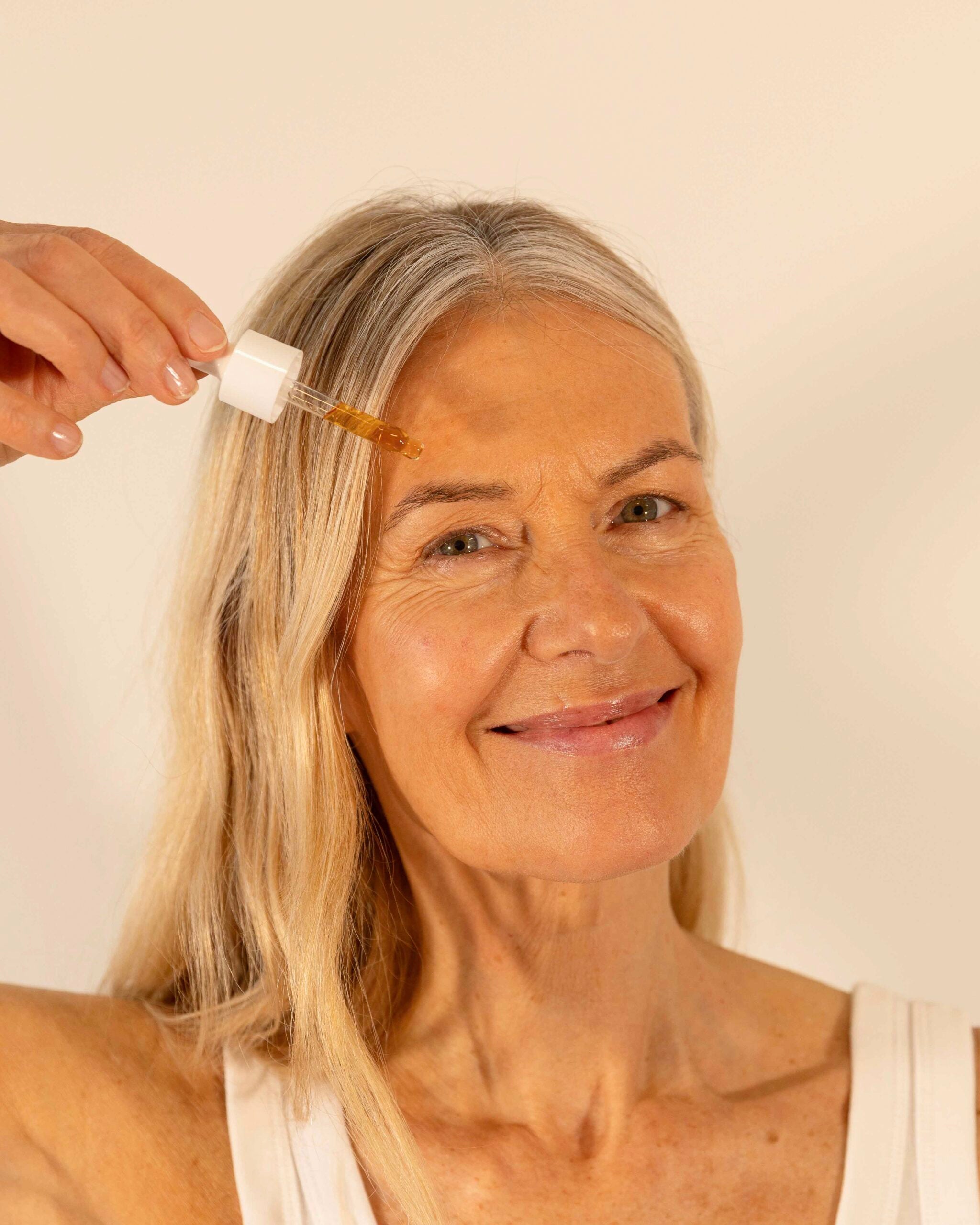
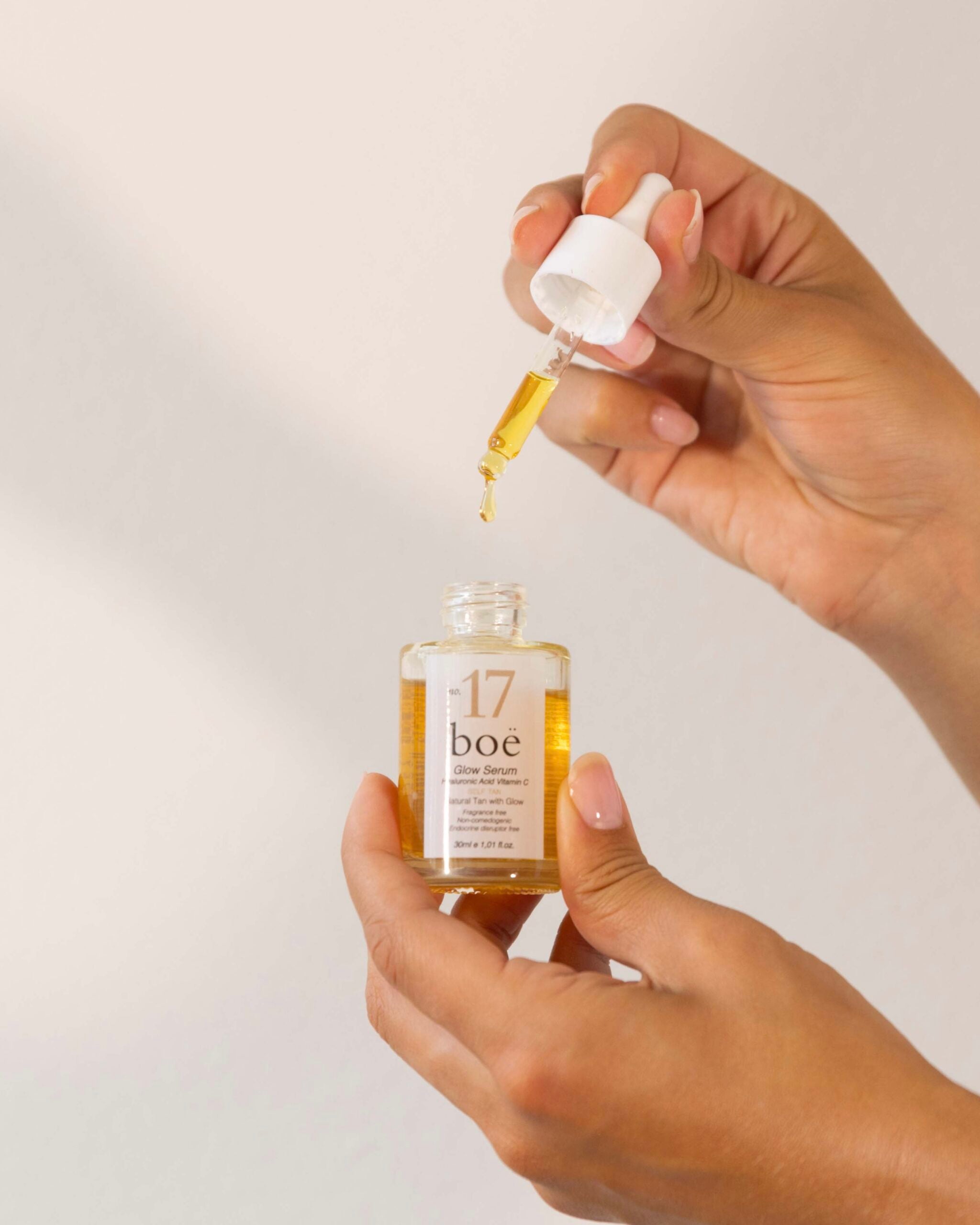

GLOW SERUM SET
Product Details
Your benefits
Application
Key ingredients
All ingredients
Pairs well with

GLOW SERUM SET
If you have any questions, you are always welcome to contact us. We'll get back to you as soon as possible, within 24 hours on weekdays.
-
Shipping Information
Use this text to answer questions in as much detail as possible for your customers.
-
Customer Support
Use this text to answer questions in as much detail as possible for your customers.
-
FAQ’s
Use this text to answer questions in as much detail as possible for your customers.
-
Contact Us
Use this text to answer questions in as much detail as possible for your customers.
facial routine
step 1: cleanse
cleanse and remove make-up and impurities with No.20 Foaming Cleanser (in the morning it's enough to wash your face with cold water if you wish)
step 2: treat, repair (& tan)
treat with our serum products designed to target your concern. Alternate with the self-tan version every 2-3 days (or as wished) to maintain a golden, natural looking tan
step 3: moisturize, hydrate (& tan)
seal the active and treating ingredients from the serum while you hydrate your skin with one of our moisturizing creams (alternate with the self-tan version every 2-3 days or as wished for a golden, natural looking tan)
(step 4: protect (in the morning))
apply our No.12 Face Cream SPF 30 or No.13 Face Cream SPF 30 with Self-Tan in the morning, year round, to protect against UVA & UVB-rays. the best and easiest way to prevent sun damage, fine lines & wrinkles
body tan routine
step 1: cleanse & dry
have clean and dry skin. make sure to be in cool and dry surroundings so the product can be absorbed in the best way.
step 2: tan
apply your favorite self-tan product evenly on the chosen area. apply an even amount and distribute thoroughly with your hands, making sure that all product is spread out and covering your skin evenly.
step 3: dry
let your tan sink in and dry in cool and dry surroundings. when you feel that your skin is dry, you're ready to resume your day/night.
(step 4: alternative moisturizing))
if you feel like it, you can always apply a moisturizer on top, when the tan is dry, to give your skin a boost of extra hydration.
a closer look
your routine simplified
We believe you only need a few essentials to maintain a radiant, healthy skin.
A simple three-step routine with high-quality products. Cleanse, repair, hydrate - and you'll have a thriving, non-stressed skin.
one day with/one day without
Our 'One Day With/One Day Without'-philosophy is based on our duo-sets. One with and one without self-tan. It's the exact same product, except one is with and one is without self-tan.
Switch between them bi-daily, or however fits your needs, and maintain a naturally tanned and glowing skin, without overdoing it and without changing your routine.
why we use BioTechnology?
We made a decision from the beginning that we wanted the best, most stable, gentle, and yet efficient products that all skin types could use. BioTechnology ensures that the ingredients and products are as safe, consistent, stable, efficient, targeted, and sustainable as possible.

